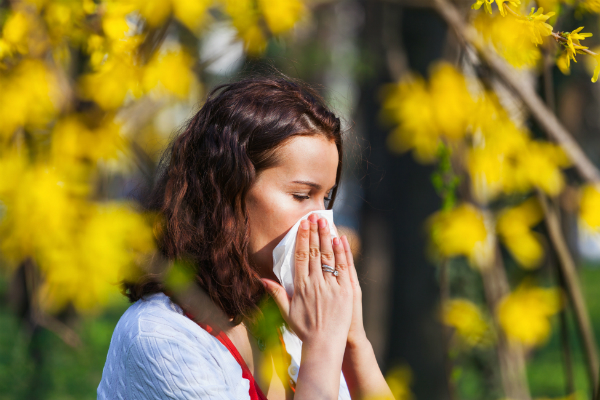Avoiding allergens, keeping a clean house, and delegating chores are just a few of the ways that you can keep your allergy symptoms at bay.
Well before April showers bring May flowers, allergy symptoms suddenly flare up and can worsen all season long. Thankfully, you can actively identify your problem allergens and mitigate the factors that cause the worst symptom flare-ups. From there, you can work with your doctor to learn the answer to the universal question: how do you treat allergies and move on with your daily activities?
Common environmental allergens
Allergies are caused by tiny environmental particles, called allergens, that trigger the histamine response in your body. Common allergens include:
- Grass, tree, and flower pollen
- Mold
- Dust
- Animal dander
You may be allergic to just one of these elements, or any combination of the four categories. You must work with your doctor to identify the allergens causing your distress and find a treatment option that controls your symptoms.
Smart ways to combat allergy symptoms
Once you know your allergen triggers, you can keep your allergy symptoms under control in the five following ways.
Allergen avoidance
You may need to delegate out specific household upkeep tasks to keep your allergy symptoms under control. If pollen causes you great distress, for example, hire a landscaping pro to mow the lawn and weed the flowerbeds. Deep cleaning the bathroom, dusting the living area, or vacuuming the floors are other tasks that are best delegated to those without allergies.
Home preparation
You can protect your home from the spread of allergens by regulating humidity and setting up an air purifier. If you keep the humidity levels between 40 and 50 percent and constantly leave an air purifier running, you can control the prevalence of allergens throughout your living space.
Over-the-counter Anti-histamines
When you encounter an allergen, your body produces chemicals called histamines—these cause the common allergy symptoms like a runny nose, itchy eyes, and sometimes even a rash.
For a quick fix, head to your pharmacy and speak with a pharmacist about which anti-histamine might be right for you; these medicines reduce or block the production of the chemicals that cause your symptoms. Anti-histamines do have their downside, though—beware of drowsiness!
Prescription medications
For severe allergy symptoms, you can work with your doctor to find a suitable prescription allergy medication. Prescription antihistamines are the most popular option due to their ability to decrease your body’s overactive response to allergens. Other types of medications can be used to treat particularly troublesome symptoms, such as sneezing, coughing or watery eyes.
Allergy shots
Doctors can help your body become accustomed to the presence of allergens by administering allergy shots on a strict schedule. The shots slowly expose your system to more and more of the specified allergen until your symptoms completely go away. These shots are typically administered once or twice a month for about six months to fully rectify this problem.
Getting care at your community health center
When you are ready to get treatment for your allergies at your community health center, make an appointment today. You will receive personalized care that helps reduce or eliminate the allergy symptoms you experience all season long.
